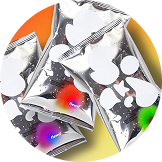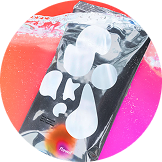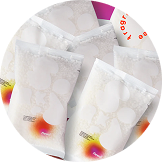You already know how hard dialysis fatigue can hit. It’s not just being tired - it’s a bone-deep exhaustion that lingers long after a session ends, making even basic tasks feel impossible.
You do it multiple times a week, so having a strategy in place for managing post-dialysis fatigue syndrome is non-negotiable. You’ve come to the right place, as we’ll show you how to treat fatigue after dialysis in this guide.
From nutrition to pacing your energy, we’ve pieced together strategies that work for us - and we’re sure they’ll work for you, too. The best advice we have to offer, though, is something we developed ourselves: our Fatigue Defeating Soak. It was made specifically for this purpose.
This energizing bath soak quickly replenishes what dialysis sucks out: magnesium for muscles, tryptophan and B6 for better sleep, and potassium for steady energy. Think of it as an energy reset you can feel. Stock up on our proven magnesium bath soaks today.
“For anyone that is anxious, irritable, tired, depressed, sad, burdened….TRY THIS SOAK! It has literally been a gift from God and has made my anxiety almost non-existent.” - Jennifer
“The anti-fatigue Flewd bath treatment is my new favorite! It smells sweeter than the others but still earthy. The scent doesn't linger. It makes me feel so refreshed after a long day of work. I suffer from lupus and this really helps!” - Shelby
“What my tired body needs! I love these. I'm a solo mama and these have been a lifesaver for tending in short bursts of time.” - Elyza
Dialysis Explained
Dialysis is a life-saving treatment when the kidneys can’t do their job of filtering waste and balancing fluids. There are two types:
- Hemodialysis: Blood is circulated through a machine that removes toxins before sending it back into the body.
- Peritoneal dialysis: The lining of your abdomen acts as the filter with the help of a cleansing fluid.
Both methods keep your system stable by removing excess fluid, balancing electrolytes, and preventing dangerous buildup. But despite the fact that it’s entirely necessary, it takes a serious toll and leaves you feeling drained. So why does dialysis cause fatigue?
Why Does Dialysis Cause Fatigue?
Fatigue is one of the most common side effects of dialysis, and it’s rarely caused by just one thing. And once you understand what happens during each treatment, it’s pretty easy to understand what causes fatigue after dialysis.
Fluid, Electrolyte, and Nutrient Shifts
Dialysis rapidly removes extra fluid and toxins from your body. That’s the whole point. However, the quick shift can leave you feeling lightheaded, dehydrated, or drained.
You’re also losing essential electrolytes like potassium, calcium, and magnesium, which can throw off muscle and nerve function. On top of that, the process can wash out water-soluble vitamins and minerals that support energy, leaving you with less fuel to work with.
Impact on Red Blood Cells (Anemia)
Many dialysis patients struggle with anemia - which is linked to fatigue all on its own.
The kidneys normally produce erythropoietin, a hormone that stimulates red blood cell production. But people on dialysis don’t have properly functioning kidneys, so fewer red blood cells are made. This means less oxygen gets delivered to your muscles and brain.
The result? That familiar “wiped out” feeling that doesn’t go away with rest.
Emotional and Mental Strain
Dialysis takes just as much of an emotional and mental burden as it does a physical one. The time commitment, lifestyle adjustments, and uncertainty about health can all increase stress, and chronic stress activates the nervous system in a way that depletes energy.
Other Lifestyle Factors
A lot of people on dialysis have to start their days incredibly early. The schedule can disrupt your sleep cycle, meal timing, and activity levels. Some patients report restless legs or muscle cramps after treatment, while others feel limited in what they can eat or drink between sessions.
Over time, these restrictions chip away at daily energy reserves. But it doesn’t have to just be something you suffer through. We’ll show you how to treat fatigue after dialysis below!
How to Treat Fatigue After Dialysis
Dialysis happens several times a week, so fatigue management isn’t optional. Otherwise, your quality of life is going to be miserable. Here’s how to treat fatigue after dialysis and get back to living life to the fullest.
Work With Your Care Team on Anemia and Nutrition
You know now that anemia is a major cause of dialysis fatigue, so talk with your doctor about whether treatments like erythropoietin (EPO) or iron supplementation make sense for you.
It’s a good idea to consult nutritionists as well, since diet plays a huge role in your energy levels and recovery rate. A renal-friendly eating plan that balances protein, limits phosphorus, and includes iron-rich foods can make a big difference in how you feel.
Hydration and Electrolyte Balance
Dialysis pulls out excess fluid, but over-drinking between sessions can make treatments harder and fatigue worse. There’s a balance to be struck here - one that you should get guidance from your care team on.
Follow careful instructions on fluid limits, sodium intake, and potassium levels to help reduce the “drained” feeling that comes post-dialysis. Even small tweaks, like spreading fluid intake evenly throughout the day, can ease pressure on your system.
Magnesium and Nutrient Replenishment
Dialysis also strips away water-soluble vitamins and minerals like B vitamins, vitamin C, and magnesium. Magnesium especially supports energy production, muscle recovery, and stress regulation. Fatigue lingers extra long without it.
But the problem is, typical magnesium supplements don’t cut it. Pills and powders absorb poorly, and just put even more strain on your system with uncomfortable side effects. That’s why our epsom salt bath alternative is one of the best strategies for coping with dialysis fatigue.
Try Flewd Stresscare’s Fatigue Defeating Soak
One of the most effective ways to restore depleted nutrients is through the skin. Our Fatigue Defeating Soak was designed with dialysis-related fatigue in mind. It delivers a powerful combination of:
- Magnesium Chloride Hexahydrate (47% concentration): A bioavailable form that replenishes muscle stores and calms the nervous system.
- Tryptophan: An amino acid that helps produce melatonin for deeper sleep and serotonin for balanced mood.
- Potassium Citrate: Supports cellular energy by keeping mitochondria (the body’s energy factories) working properly.
- Vitamin B6: Critical for converting food into energy and aiding neurotransmitter production.
The ripe green fig, sandalwood, and bergamot scent adds a calming, spa-like element that turns recovery into a ritual. The result? Less brain fog, better sleep, and steadier energy between treatments.
Use it 2-3 times a week by pouring the contents into a warm bath, soaking for at least 15-20 minutes, and allowing your body to absorb the nutrients directly. You’ll be amazed at how much better you feel if you’re consistent.
Relaxation and Recovery Rituals
Rest after dialysis isn’t a luxury. It’s part of the treatment protocol. Create a wind-down routine that helps your body reset. This might consist of gentle stretching, a short nap if needed, or mindfulness practices like deep breathing.
Of course, you should be prioritizing sleep at night since this is when your body repairs and replenishes energy. You might consider trying our Insomnia Ending soak for help drifting away to dreamland (and staying there).
Signs You’re Recovering Well From Dialysis Fatigue
Recovery from post-dialysis fatigue syndrome doesn’t always feel dramatic. Sometimes it shows up in subtle, steady changes. Paying attention to these shifts is key to finding out whether or not these tips on how to treat fatigue after dialysis are working.
- More Consistent Energy: Instead of crashing hard right after treatment, you notice your energy stretches longer. You may still tire, but it’s not the overwhelming wipeout that used to derail your whole day.
- Mental Clarity: Brain fog is a hallmark of dialysis fatigue. A positive sign of recovery is when it’s easier to concentrate, recall details, or follow conversations without feeling drained.
- Improved Daily Function: Tasks that once felt heavy - preparing a meal, walking around the block, or managing errands - start to feel doable again. Progress often shows up in these small, everyday wins.
- Better Sleep Quality: Falling asleep faster, waking up less often during the night, or feeling genuinely refreshed in the morning all indicate your body is recovering more fully after dialysis.
- Emotional Balance: You feel less irritable, anxious, or low in the days after treatment. A steadier mood is a strong sign that your nervous system and energy reserves are bouncing back.
Don’t let the fatigue after dialysis steal your lust for life. Put our advice on how to treat fatigue after dialysis into practice and get back to feeling like your old self again!
Final Words on Post-Dialysis Fatigue Syndrome
Dialysis fatigue is real, and it’s not just in your head. It comes from fluid shifts, nutrient losses, anemia, and the emotional strain of treatment. But with the right mix of medical support, self-care strategies, and recovery rituals, you can reclaim more energy between sessions.
You can learn more about chronic fatigue syndrome self-care in our blog. We have similar resources on how to combat fatigue from birth control, how to treat PCOS fatigue, and how to treat ADHD fatigue. The key takeaway is more or less the same, though: give your body what it needs most with Flewd Stresscare.
Don’t just recover. Recharge and reset your energy with Flewd’s Fatigue Defeating Soak today!
Frequently asked questions
Is it normal to be extremely tired after dialysis?
Yes - fatigue is one of the most common side effects of dialysis. It happens because treatments shift fluids, lower red blood cell counts, and may deplete nutrients your body relies on for energy production and maintenance.
What can dialysis patients take for energy?
Your care team may recommend iron, erythropoietin (EPO), or specific vitamins and minerals if anemia or deficiencies are involved. But even just soaking up magnesium, B vitamins, and potassium through our formula at Flewd Stresscare can make a massive difference.
How to get rid of dialysis fatigue fast?
Recovery usually takes pacing, rest, and nutrient replenishment. A warm magnesium soak, light movement, and proper hydration can help ease dialysis fatigue fast. Stock up at Flewd Stresscare today.
























































